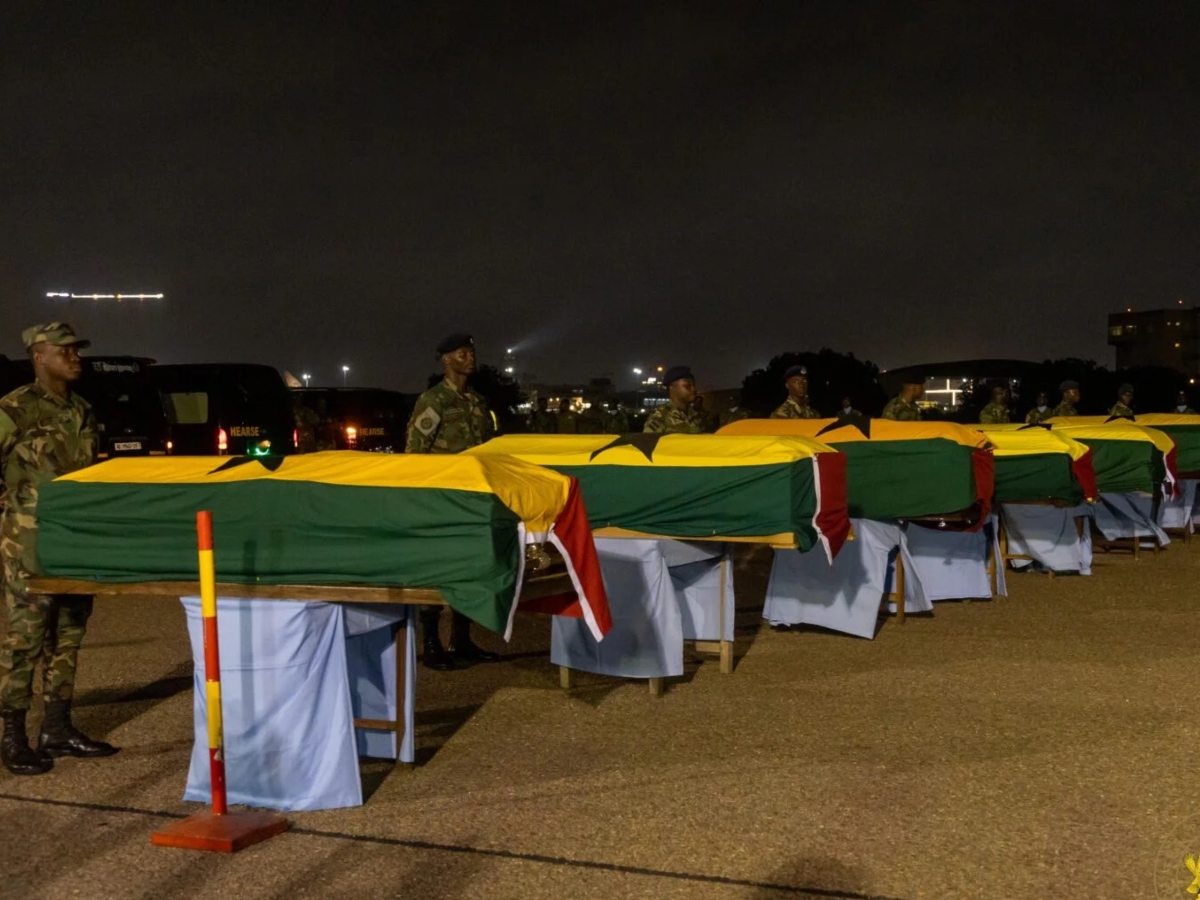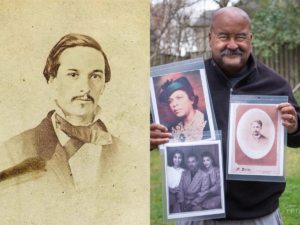Two prominent Ghanaian ministers — pillars of their political camps, dressed often in fine suits and symbols of state power — now lie silent in jute sacks, their lives abruptly ended by a tragic helicopter crash.
Once the subjects of endless television footage and social media headlines, their final images are now grainy photos of wreckage and black cloth.
The suits are gone. The power is gone. What remains is the cold finality of death — and, predictably, the noise of political blame games.
As always in Ghana, before the shock could settle, conspiracy theories began to fly faster than the ill-fated aircraft. One side suspects sabotage. The other suggests negligence. Both forget that two lives were lost — not party colors, not votes, but lives. Real, human lives.
We must ask ourselves: From suit to jute sack, are we learning anything?
“For in that sleep of death, what dreams may come…” — Hamlet, Act 3, Scene 1
Shakespeare reminds us of the mystery beyond life, but also of its brevity. One moment, we walk in honour, flanked by sirens, and in the next, we are headlines. The Bible, too, speaks plainly:
“For what is your life? It is even a vapour, that appeareth for a little time, and then vanisheth away.”
And yet, even in tragedy, Ghana cannot resist the urge to politicize death. Supporters of the two main parties — NPP and NDC — are again locked in a grotesque contest: Who killed whom? Who is hiding the truth? Who benefits politically?
Where is our national conscience?
We must stop this cycle of political buffoonery, especially at moments demanding solemn unity. It is possible to mourn without assigning blame. It is necessary to reflect without making accusations. The helicopter did not ask who the passengers voted for. Death knows no manifesto.
The Deeper Question: Where Are Our Priorities?
Every time we lose lives in tragic incidents — whether from road crashes, floods, fires, or failed rescue operations — we are reminded of the consequences of neglect. Infrastructure meant to save lives often does not exist. Emergency response systems are underfunded. Aviation oversight is too often reactive instead of preventive.
Meanwhile, corruption continues to bleed our public purse dry. Monies meant for hospitals are swallowed. Funds for transportation safety are diverted. Contracts for infrastructure are inflated or abandoned. The result? Tragedies that could have been prevented.
“The love of money is the root of all evil.”
Let’s be honest: if we tackled corruption with the same energy we dedicate to political campaigns, Ghana could afford better aviation oversight. We could have helicopters that are newer, safer. We could train rescue teams. We could save lives.
But instead, we save face. We save party reputation. And we sacrifice lives.
This moment is not about the NDC or the NPP. It is about Ghana. It is about the fleeting nature of life. It is about remembering that our politicians, no matter how powerful, wear the same human skin. Death equalises us all — the professor and the pauper, the minister and the messenger.
From suit to jute sack — let that image haunt us, not to depress, but to sober us.
We must stop turning every tragedy into a political football match. We must learn to cry together, not shout at each other. We must learn to act — not just talk — on the lessons death continues to teach us.
Let the passing of these two ministers and the six others not be in vain. Let their memory move us toward national maturity.
Let us reflect, reform, and rise — for tomorrow is promised to no one.
READ ALSO: Check out the top 10 most visited countries in Africa in 2024
From Snr Lawyer Francis Asare (Pearson ‘84)










